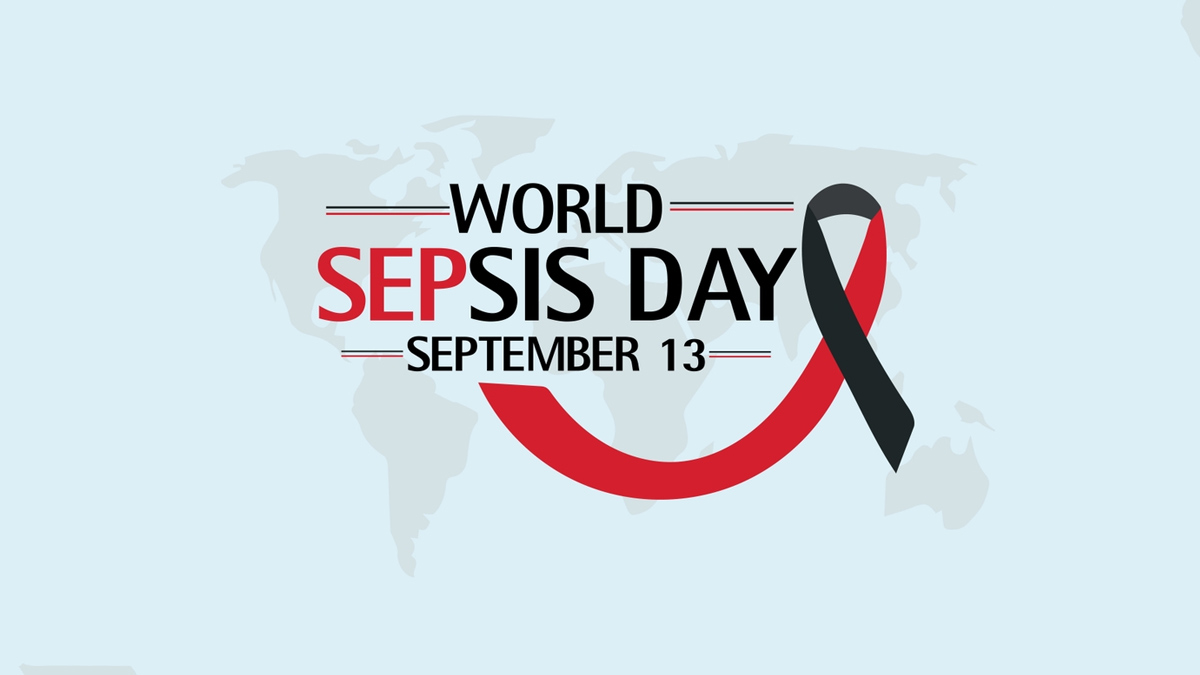
The importance and necessity of World Sepsis Day lies in the question- ‘How aware are you of what sepsis is.’ Do you know that in 2017, 48·9 million cases of sepsis were recorded worldwide, causing 11 million deaths, making up 19·7% of all global deaths? This data shared by The Lancet’s Global Burden of Disease (GBD) study is piled on by the World Health Organisation’s mortifying discovery that 41% or 20 million of all global sepsis cases in 2017 occurred among children under five years of age.
These distressing facts should be enough for you to start educating yourself about this morbid consequence, and that is exactly the reason why World Sepsis Day is observed annually on September 13th to raise awareness about this life-threatening medical condition, and its impact on individuals, families, and healthcare systems worldwide.
What Is Sepsis?

On the occasion of World Sepsis Day 2023, Dr Harish Chafle, Consultant Intensivist and Chest Physician, Global Hospitals, Parel Mumbai, educated the team of OnlyMyHealth about the symptoms, causes, and preventive measures of sepsis. “Sepsis is a severe and potentially life-threatening medical condition that occurs when the body's response to an infection becomes dysregulated and results in widespread inflammation throughout the body. It can lead to organ dysfunction and failure, known as septic shock, which is a medical emergency,” he informed.
Also Read: Sepsis Infection: Symptoms, Causes and Risk Involved
To simplify Dr Chafle’s information, sepsis is typically caused by an infection, most commonly bacterial, but it can also result from fungal or viral infections. The infection can start anywhere in the body, such as in the lungs (pneumonia), urinary tract, abdomen (appendicitis), skin (cellulitis), or from an infected wound. When the immune system detects the infection, it releases chemicals to combat it. In sepsis, the body's response goes awry, leading to widespread inflammation instead of targeted control of the infection.
Adverse Effects of Sepsis
Urging the common folk to take this disease seriously, Dr Chafle listed a set of adverse effects that can be caused due to sepsis:
- Organ Dysfunction: The inflammation and immune response triggered by sepsis can lead to dysfunction in various organs, including the heart, lungs, kidneys, liver, and brain. This can result in multi-organ failure.
- Hypotension: Sepsis can cause low blood pressure, which can lead to inadequate blood flow to vital organs, potentially causing tissue damage and organ failure.
- Disseminated Intravascular Coagulation (DIC): In some cases, sepsis can disrupt the normal blood clotting process, leading to both excessive bleeding and excessive clotting, which can be life-threatening.
- Respiratory Distress: Severe sepsis can impair lung function, leading to difficulty breathing and the need for mechanical ventilation.
- Altered Mental State: Sepsis can affect the brain, causing confusion, disorientation, and even coma.
- Septic Shock: When sepsis progresses to septic shock, it can result in extremely low blood pressure, which can be fatal if not promptly treated.
Dr Chafle shared, "Anyone with symptoms such as fever, rapid heart rate, rapid breathing, confusion, or severe illness should seek immediate medical attention. Timely administration of antibiotics and supportive care to stabilise vital functions are essential to manage the condition and prevent organ damage."
Diagnosis And Treatment Of Sepsis

World Sepsis Day should not be just another health awareness day for you. Sepsis knows no borders or boundaries. It affects people of all ages and backgrounds worldwide. Yet many people remain unaware of sepsis until it directly impacts their lives.
Also Read: Sepsis and Pregnancy: Know Possible Complications Of Maternal Sepsis
The team of OnlyMyHealth further connected with Dr Gowri Kulkarni, Head of Medical Operations, MediBuddy to understand the best ways to prevent sepsis:
- Vaccination: Staying up-to-date on vaccinations can prevent some infections that may lead to sepsis.
- Hand Hygiene: Regular handwashing and proper hygiene practices can reduce the risk of infections.
- Timely Treatment: Seek immediate medical attention for infections, wounds, or injuries to prevent their progression to sepsis.
- Infection Control: In healthcare settings, rigorous infection control measures, including sterile procedures and proper sanitation are essential.
- Optimal treatment of chronic diseases: The key to managing chronic diseases should be treated immediately. Uncontrolled diabetes can be a severe risk factor for sepsis.
Dr Kulkarni also shared a number of ways by which sepsis can be treated, to prepare everyone about what's in store for them if they unfortunately contract sepsi:
- Antibiotics: Broad-spectrum antibiotics are administered promptly to target the suspected infection. Once the specific pathogen is identified, treatment may be adjusted.
- Intravenous fluids: Intravenous fluids are given to maintain blood pressure and improve organ perfusion. In severe cases vasopressors may be required.
- Supportive Care: Patients often require intensive care with mechanical ventilation, kidney support, and other therapies to manage organ failure.
Dr Chafle concluded, “As we all know timely treatment means safe myocardial tissue after a heart attack, and safe neurons after a stroke. Similarly, for sepsis, timely treatment means safe organs. So acting on time can help you prevent multiorgan failure due to sepsis.” So let’s join the global community on September 13th, on the occasion of World Sepsis Day 2023, to educate ourselves about sepsis and contribute to the fight against this devastating condition. Together, we can make a difference and save those around us.
Also watch this video
How we keep this article up to date:
We work with experts and keep a close eye on the latest in health and wellness. Whenever there is a new research or helpful information, we update our articles with accurate and useful advice.
Current Version